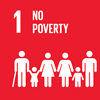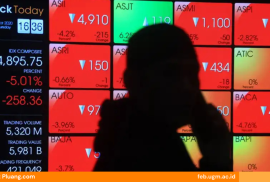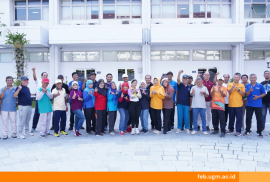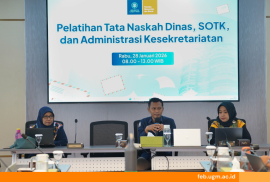
The Faculty of Economics and Business, Universitas Gadjah Mada (FEB UGM), reaffirmed its commitment to becoming a catalyst for change through societal impact in higher education for economics and business. The Dean of FEB UGM, Prof. Didi Achjari, M.Com, conveyed this message., Akt., Ph.D., during the 22nd Plenary Session of the Indonesian Association of Faculties of Economics and Business (AFEBI), held in Denpasar on May 8, 2025.
In the workshop session titled “Sustainable Societal Impact: Sharing Experiences from Business Schools in Indonesia,” Prof. Didi shared his strategic perspective on the role of business schools in generating societal impact and contributing to solutions for development issues. He emphasized the importance of reorienting business school mission statements. At FEB, this reorientation aligns with UGM’s Long-Term Development Plan 2017–2037 and Strategic Plan 2022–2027. Since 2023, FEB UGM has updated its vision to “To be the leading faculty of economics and business” and its mission to “Nurture future-ready leaders in economics and business to foster sustainability.”
Prof. Didi also called for greater engagement from higher education institutions in addressing sustainability issues, particularly in light of Indonesia’s structural development challenges such as poverty alleviation, human resource development, and institutional reform. He noted that reorienting the mission is part of the continuous improvement process expected of AACSB-accredited business schools.
Further, Prof. Didi outlined various academic and research programs at FEB UGM built around societal impact. Curricular innovations include the MBA in Sustainability Management and the Master of Economic Development, both focusing on sustainability issues. FEB UGM also developed data analytics-oriented curricula, including Data Analytics courses in the Master of Science in Management program and Data Science and AI courses in the Master of Science in Accounting program.
“We also offer a fast-track program from undergraduate to master’s degree in Accounting,” he added.
In addition, FEB UGM continues to promote diversity through its student admission process and expands public access to knowledge through the Knowledge Channel and MOOC platforms.
FEB UGM is also committed to promoting collaborative research that supports evidence-based policymaking. One such example is the research conducted by Dr. Elan Satriawan (Department of Economics) and his co-authors, which evaluated the impact of poverty alleviation programs, such as the Conditional Cash Transfer (PKH) and Electronic Food Voucher (BNPT-Sembako) programs, on the livelihoods of low-income households in Indonesia. The evaluation, conducted in collaboration with Nobel Laureate Prof. Abhijit Banerjee (MIT), was published in the American Economic Review and American Economic Journal: Economic Policy—top-ranked journals in economics. The findings were later used as a basis by the Indonesian government to enhance the PKH and BNPT-Sembako programs.
FEB UGM actively promotes digital financial literacy through initiatives like the Sidek-Edu platform, which integrates accounting theory and practice into a digital learning management system (LMS). More than 25 vocational high schools (SMKs) across Java and two universities have adopted this platform, reaching 3,634 active users. Sidek-Edu has successfully improved student satisfaction, addressed learning needs, and enhanced accounting competencies. In addition, FEB UGM has conducted training programs for MSMEs, including one in Papua in collaboration with the Keerom Regency Government. Through the Sidek-ERP platform, the faculty has helped local businesses implement enterprise resource planning (ERP) systems to improve their operations.
FEB UGM has also pioneered the Gadjah Mada Digital Transformation Governance Index (GM-DTGI), an innovative instrument designed to assess digital transformation performance in city and district governments across Indonesia. GM-DTGI evaluates the implementation of Electronic-Based Government Systems (SPBE) and other digital governance innovations at the local level, helping regions map their digital capacity and identify areas for improvement based on data-driven assessments.
In closing, Prof. Didi called on all AFEBI members to enhance their relevance through measurable societal impact. In this spirit, FEB UGM has realigned its mission and strategic plan to address society’s key economic and business issues.
“As a manifestation of this mission, our Faculty can design Tridharma-based activities to contribute to solving societal problems, especially those related to achieving the Sustainable Development Goals,” he concluded.
Report by: Kurnia Ekaptiningrum
Sustainable Development Goals











